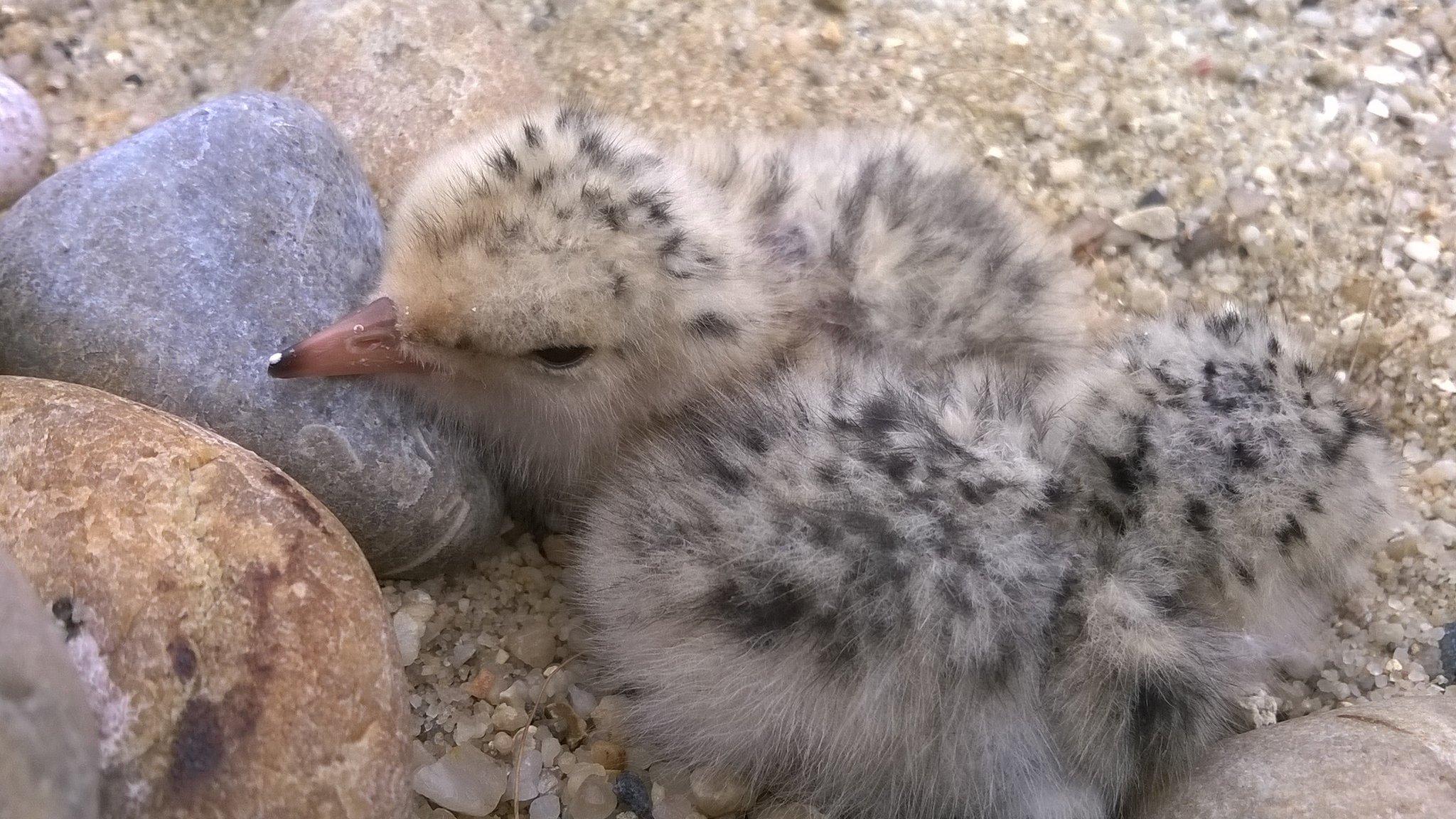Chesil Beach volunteers recognised for efforts during pandemic
- Published
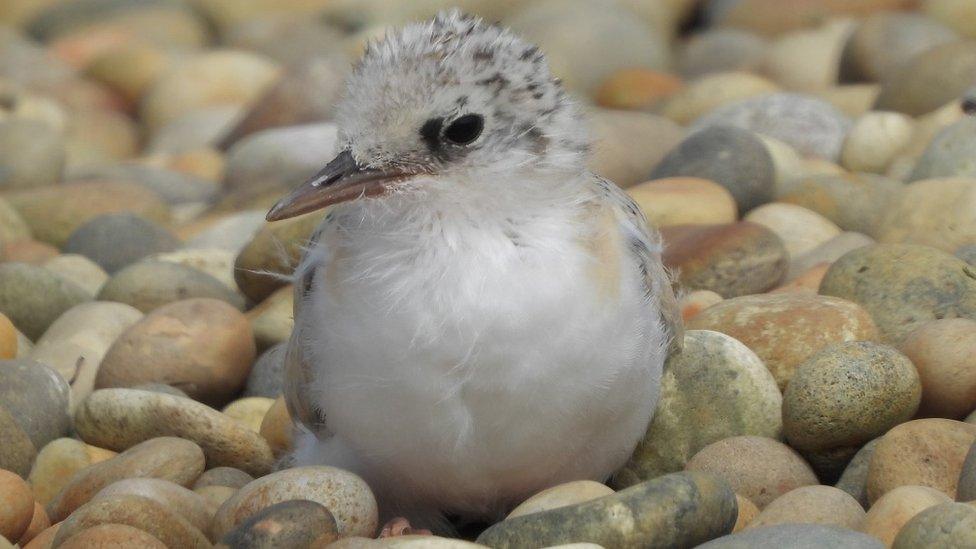
The small fish-easting seabirds weigh about the same as a tennis ball
A team of volunteers who protect a colony of seabirds on a beach have been honoured with an award from the RSPB.
The Chesil Little Tern project watch little terns round the clock at Chesil Beach, Dorset during breeding season.
The charity said the group had been awarded its President's Award for their "novel solutions" during the pandemic.
The team fed kestrels from cliffs to protect chicks after enlisting a climbing instructor and used thermal imaging to keep predators from eggs.
The birds nest on pebbles making their eggs and fledglings more vulnerable.
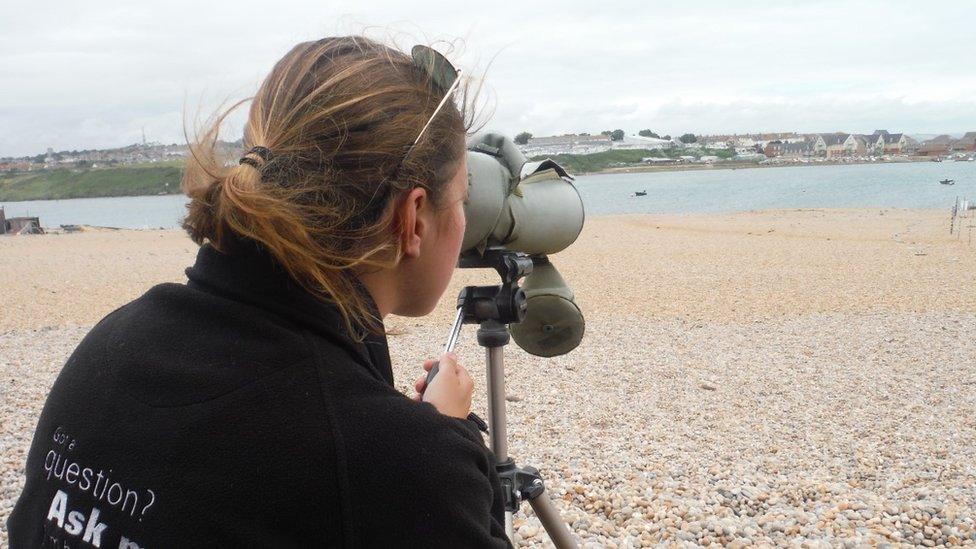
The volunteers protect and record the birds at Chesil Beach
Volunteer John Dadds said: "We call the little tern the 'Homer Simpson' of the bird world because if anything can go wrong it will go wrong.
"We pulled out all the stops - a lot of people put a lot of time in so it's nice to get the recognition."
Due to Covid, the project, managed by the RSPB, was scaled back from 50 to 17 volunteers and had to run without RSPB night wardens.
The RSPB said: "Undeterred, they rose to the challenge. Thanks to these novel solutions, they ensured the breeding season could go ahead, even in the most difficult of circumstances.
"The team's hard word, ingenuity and willingness to try new approaches helped the Chesil terns raise more than 30 chicks last year."
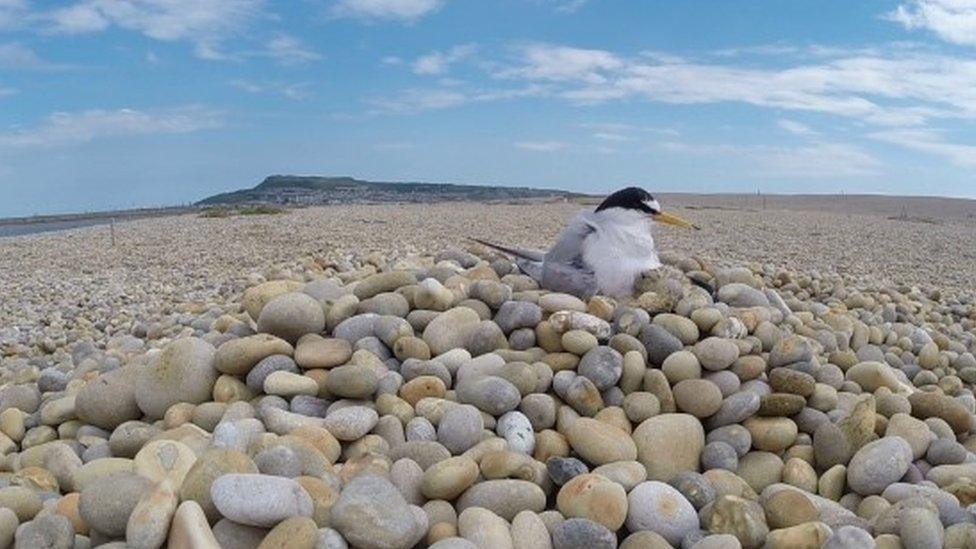
The seabirds nest in the pebbles on the beach making them an easier target for predators
The small fish-eating seabirds, which weigh about the same as a tennis ball, typically live for around 14 years.
Once they have reached maturity aged two, the terns migrate from the shingle beach to West Africa and back - a journey of 2,485miles (4,000km).
The birds, Britain's second-rarest seabird, visit the beach in April and May, migration back to West Africa starts in August.
The Chesil Beach Little Tern Project is managed by the RSPB, supported by Dorset Wildlife Trust, Natural England, The Portland Court Leet, the Crown Estate & the Chesil Bank and Fleet Nature Reserve.

Follow BBC South on Facebook, external, Twitter, external, or Instagram, external. Send your story ideas to south.newsonline@bbc.co.uk, external.
- Published5 August 2015
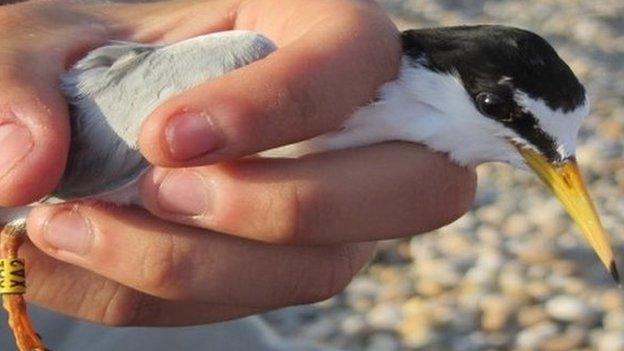
- Published8 August 2014
